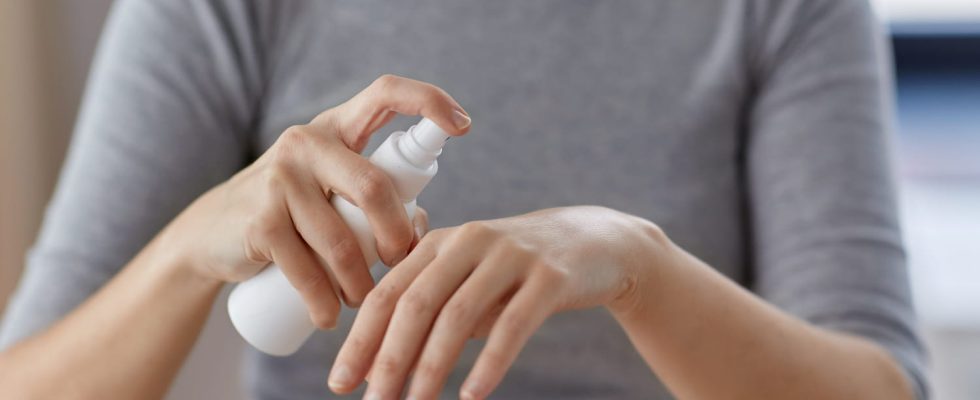The Medicines Agency reports an increase in serious allergic reactions associated with the use of an antiseptic present in disinfectant sprays, throat lozenges, etc.
Urticaria, swelling of the face, breathing difficulties or even anaphylactic shock. The Medicines Agency (ANSM) draws a loud alarm signal about chlorhexidine, antiseptic used to disinfect wounds (Biseptin®), in throat lozenges (Drill®) or mouthwashes. The ANSM reports “a constant increase the number of reports of serious allergic reactions associated with chlorhexidine (…) which generally occur within one hour of use“. Reactions that remainrare” but deserve some precautions. The Health Agency does not recommend using it as a first disinfectant at home and advises giving priority to washing with clean water and soap to clean a superficial wound: scrape, abrasion, shallow and small cut, small superficial burn.
If you experience these symptoms, stop using chlorhexidine
If you have one or more of the following symptoms, suggesting a serious allergy, stop using chlorhexidineinform the drug agency and call 15 :
- A urticaria or a rash with redness and itching
- A facial swellinglips, tongue or throat
- Of the breathing difficulties : wheezing or shortness of breath…
- A feeling of weakness or dizziness
- A strange metallic taste in the mouth
- A fainting
- Anaphylactic shock
In which medications?
Chlorhexidine is present in antiseptics for skin use or in the form of mouthwashes, solutions for mouth sprayof lozenges, eye drops, or urological gels. It can also be used in hygiene products (toothpastes for example) and cosmetics (as a preservative). It is found for example in:
- Biseptin
- Eludril
- Angi-spray
- Mecryl
- Cantalene
- Drill pellets
- Cyteal
- Septivon
- Paroex
Read also:
If you have ever had or think you have had an allergic reaction to chlorhexidine, tell your nurse, pharmacist, doctor, surgeon or dentist. It is important that he is aware of this allergy, especially when disinfecting your skin duringa puncture (injection of a drug or blood sample for example) or a surgical operation. You can also register this allergy in your Health Space. If in doubt, consult an allergist.
